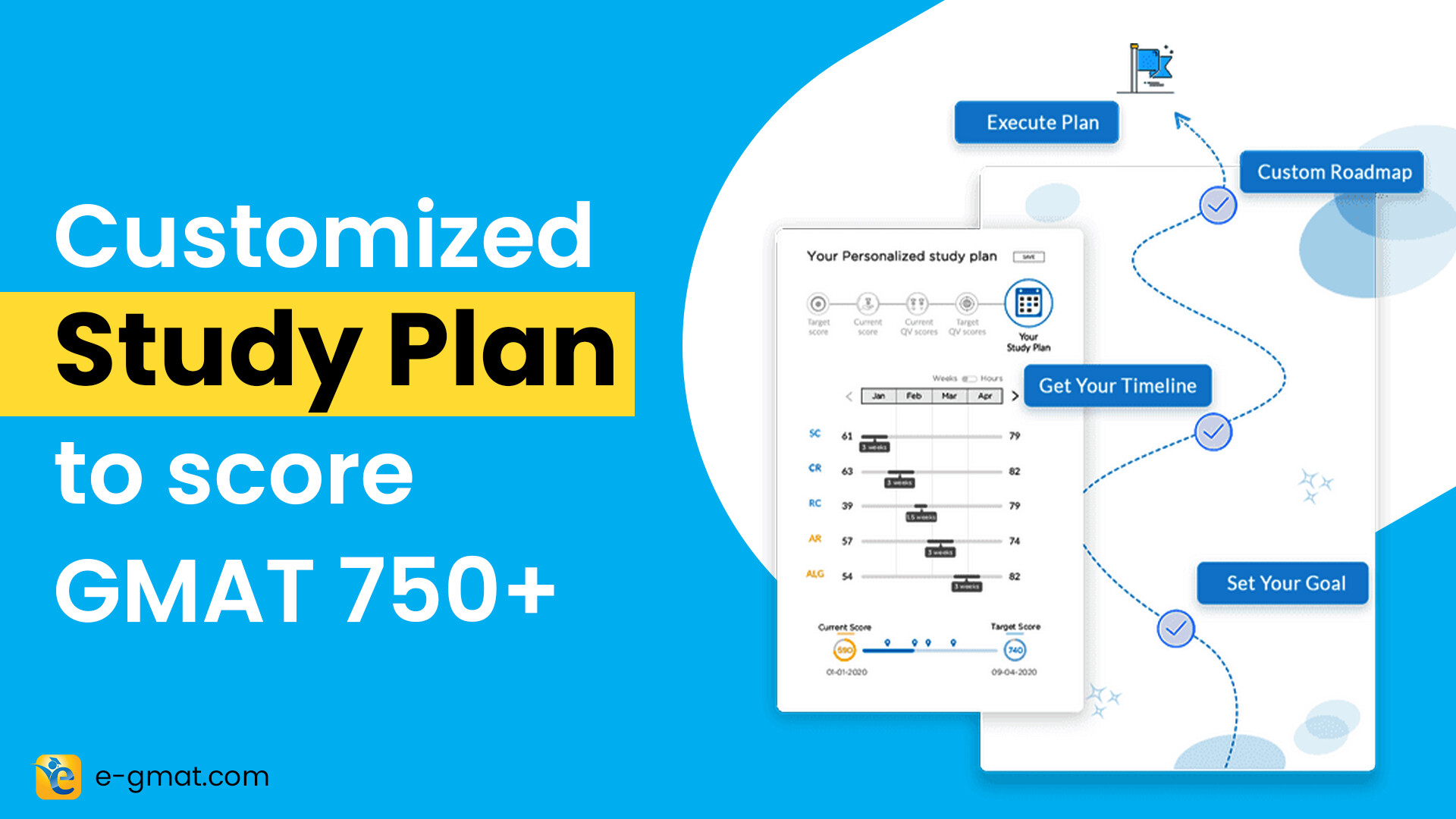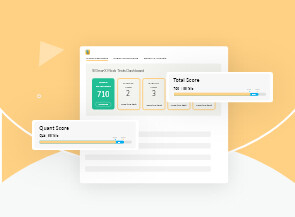MBA Business Analytics or Master of Business Administration Business Analytics is generally a 2-year program. It is traditionally a Master of Business Administration (MBA) degree with a concentration in Business Analytics.
Business analytics is the process of collecting, combining, sorting, processing, and using statistical models and methodologies to transform data into business insights. It helps in determining which dataset is useful and how it can be leveraged to solve problems and increase productivity, efficiency, and revenue.
An MBA in Business Analytics will train you in both technical and management skills. At some of the Top MBA colleges for business analytics, students learn topics like – Data Mining, Decision Models, Visualization, data acquisition and preparation, and Customer analytics.
After completing your MBA Business Analytics degree, you can apply to jobs like business analyst, data analyst, data engineer, predictive modeler, risk management analyst etc.

This article talks about why you should pursue an MBA in business analytics, its career options, and its salary outcome. We also rank the top MBA Colleges in Business analytics and highlight their unique offerings.
Here’s the outline of the article:
Want to pursue an MBA in Business Analytics? A 740+ GMAT score will help you to stand out and make your MBA application more competitive as compared to other applicants. We can help you by giving access to quality online content to prepare. Signup for our Free Trial and get free access to GMAT resources.
MBA in Business Analytics 2023
According to a survey conducted by NewVantage partners, 91.9% of the firms that participated in the survey stated that their firms had delivered measurable business value from data and analytics investment, up dramatically from five years ago when only 48.4% of organizations reported seeing a measurable return. The growing optimism of data leaders is reflected in the projection that 98.2% of firms would see a return on their investments in 2023! Another report by Accenture points out the importance of Analytics in consumer-packaged-goods (CPG) and how companies should develop an enterprise-wide analytics strategy to harness the power of analytics. Thus, business analytics has been transforming how businesses function and will continue to do so in the future. With the demand for experts in this stream at an all-time high, many business schools are offering MBA concentrations in Business Analytics or Big data.
Learn about Which MBA Specialization is best for you?
|
Full-Form |
Master of Business Administration Business Analytics |
|
Duration |
2 years |
|
Entrance Exam |
GMAT, GRE, CAT, XAT, etc |
|
MBA Business Analytics Subjects |
Decision Analysis, Predictive Modeling, Project management, marketing analytics, data science, business intelligence, and many more |
|
MBA Business Analytics Jobs |
Data Analyst, Data Scientist, Business Intelligence analyst, big data analytics, market research analyst, and many more |
|
MBA Business Analytics Salary |
$115,802 |
|
Top MBA Colleges for Business Analytics | NYU Stern, HEC Paris, Wharton School of Business, and Tepper school of business. |
Pursuing your MBA at top MBA colleges can help students analyze and sort big data a make efficient decisions.
Business analytics is an umbrella term that encompasses two district fields of practices:
- Business Intelligence (Descriptive Analytics)
- Advanced analytics (Predictive Analytics)
Business Intelligence (Descriptive Analytics)
Business Intelligence (B.I.) is typically descriptive, focusing on the tools and strategies utilized to identify, acquire, and categorize raw data on past or current events. It is a process of reviewing historical data to understand how a product line or department within a business has performed over a specific time. Some of the practices under Business Intelligence include querying, reporting, and online analytical processing (OLAP).
Advanced analytics (Predictive Analytics)
It is a more recent development and involves in-depth statistical analysis, such as performing predictive analytics by applying statistical algorithms to historical data. It helps to predict how new services or product will affect sales. Some of the practices under Advanced analytics include cluster analysis, data mining, simulation algorithms.
Why MBA in Business Analytics?

An MBA is a highly lucrative career option in the current market, largely due to the cascading effects of the COVID-19 pandemic. The pandemic has increased the demand for experts in data analytics as businesses try to understand the crisis and make informed decisions. The disruption in global supply chains due to the pandemic has increased the demand for professionals in supply chain analytics so that companies can understand and optimize their supply chains. The hiring trends of the companies in the past few years, according to the 2022 corporate recruiters survey by GMAC, clearly indicate the increase in demand for professionals in data analytics: Overall, nearly 9 in 10 corporate recruiters plan to hire Master of Data Analytics graduates in 2022 (86%), up from 73 percent of the same recruiters who actually hired them in 2021.
The students in MBA business analytics learn concepts that are important for the discipline, such as predictive analysis, marketing intelligence, econometrics, data and text mining, data visualization, and more.
From marketing managers seeking data about customers to financial analysts calculating investment decisions, data has become a fundamental part of the business.
Many employers have started to recognize the importance of data and are looking for professionals who understand analytical tools and are familiar with concepts of data science.
According to the E.Y. report, one of the key drivers to implement big data analytics is to understand customers better, followed by to improve products and services and to improve the management of existing data.
Hiring Projection for MBA Graduates in Business Analytics
In the Corporate Recruiters Survey 2022 by GMAC, 30% of the responding companies plan to hire graduates for data analytics/intelligence job functions in 2022.
Hiring intention for Master of Data Analytics graduates is highest among recruiters in the east and southeast Asia region (92%), followed by the Middle east (88%).
A McKinsey Global Institute report estimated 4 million positions in the U.S. alone, where employers require analytical skills, and pointed out a shortfall of 1.5 million data-savvy managers and analysts.
With an increasing number of employers hiring data-driven candidates and a shortfall of data-savvy managers and analysts, business schools have started offering MBA specialization in Business Analytics and are teaching the concepts of analytics in their core curriculum.
Thus, an MBA program that specializes in Business Analytics or Big Data is valuable because it allows students to understand how to sort, collect, and understand the implications of data and how to leverage it to meet strategic goals.
Want to pursue an MBA in Business Analytics? A 740+ GMAT score will help you to stand out and make your MBA application more competitive as compared to other applicants. We can help you by giving access to quality online content to prepare. Signup for our Free Trial and get free access to GMAT resources.
Career Options
The careers in business analytics can range from analyst-level positions to business intelligence managers, and the concept applies to various business functions such as marketing, operations, supply chain, and more. Some MBAs find jobs as analysts, while others put their skills to use in financial or consulting organizations.
In McKinsey’s survey, 58% of the respondents at top-performing companies say that their organization had deep functional expertise across data engineering, data science, data architecture, and analytical transformation.
Besides, top-performing organizations have four times as many analytics professionals and one and a half times more functional experts than other companies.
Listed below are career options available after MBA in business analytics:
- Management Analyst/Consultant
- Data Analyst/Scientist
- Business Intelligence Analyst
- Program and Marketing Manager
- Big Data Analytics
- Operations Research Analyst
- Market research Analyst
- And many more
After having an idea about what is business analytics and the career options available, you might be wondering about the skills that are required to become a business analyst.
According to the GMAC Corporate Recruiters Survey 2022, more than half of the recruiters rate strategic and systems skills, decision-making processes, and interpretation skills as the most important.
The list below highlights skills that are required to pursue a career in business analytics:
- Communication skills
- Technical Skills
- Managerial Skills
- Decision-making Skills
- Analytical Skills
- Critical thinking Skills
- Negotiation Skills
MBA Business Analytics Salary and Employment Statistics
Glassdoor reports Data Scientist job profile is ranked number 3, for the best jobs in America 2022. The below table shows the median base salary for various career options in business analytics, according to Glassdoor:
According to Salary.com, the business analytics manager earns a yearly salary between $129,065 - $137,185, making it one of the most promising careers.
Top 10 MBA Colleges for Business Analytics

A high GMAT score can set you apart from the competition and help you get an admit at your dream business school. Start your GMAT Preparation with the most reviewed online GMAT prep company. Try out our FREE Trial Today!
Here is the list of top MBA colleges for Business Analytics 2023:
- Massachusetts Institute of Technology (Sloan)
- Carnegie Mellon University (Tepper)
- Georgia Institute of Technology (Scheller)
- University of Pennsylvania (Wharton)
- New York University (Stern)
- University of California, Berkeley (Haas)
- University of Texas--Austin (McCombs)
- University of Chicago (Booth)
- HEC Paris
- Imperial College Business School
*The rankings for the top MBA colleges in USA have been taken from US News- 2023 rankings for business analytics
Massachusetts Institute of Technology (Sloan)
GMAT Score: 730
Location: Cambridge, Greater Boston, USA
MBA Cost per year: $ 86,400
MBA Salary: $1,65,000
Percentage of students placed in Business Analytics function: 2.4%
Carnegie Mellon University (Tepper)
GMAT Score: 702
Location: Pittsburgh
Tuition Fees: $72,800
MBA Salary: $ 148,067
Georgia Institute of Technology (Scheller)
GMAT Score: 690
Location: Atlanta, Georgia, US
Tuition Fees(per year): $40,752
MBA Base Salary: $136,819
Wharton School of Business
GMAT Score: 733
Location: Philadelphia, Pennsylvania
Tuition Fees: $84,874
MBA Base Salary: $155,000
Percentage of students placed in Business Analytics function: 0.5%
NYU Stern School of Business
GMAT Score: 733
Location: New York, USA
Tuition Fees: $82,326
MBA Salary: $175,000
Percentage of students placed in Business Analytics function: 1.40%
University of California, Berkeley (Haas)
GMAT Score: 729
Location: Berkeley, California, USA
Tuition Fees: $76,433
MBA Base Salary: $155,000
University of Texas-Austin (McCombs)
GMAT Score: 660 – 750
Location: Austin, Texas, USA
Tuition Fees: $59,800
MBA Base Salary: $125,000
Percentage of students placed in Business Analytics function: 1.9%
Take a free GMAT mock to understand your baseline score and start your GMAT prep with our free trial. We are the most reviewed online GMAT Prep company with 2500+ reviews on GMATClub
University of Chicago (Booth)
GMAT Score: 729
Location: Chicago, Illinois, USA
Tuition Fees: $77,841
MBA Bse Salary: $155,000
Percentage of students placed in Business Analytics function: 0.4%
HEC Paris
GMAT Score: 690
Location: Paris, France
Tuition Fees: $84,750
MBA Salary: $116,504
Imperial College Business School
GMAT Score: 600+
Location: London
Tuition Fees: £37,300
MBA Salary: £69,000
All the above-mentioned Business Schools require a good GMAT score. A 740+ GMAT score will help you to stand out and make your MBA application more competitive as compared to other applicants. We can help you by giving access to quality online content to prepare. Signup for our Free Trial and get free access to GMAT resources.
Here are some related articles on:
- Best business schools for Finance
- Best Business Schools for Marketing
- Best Business Schools for Operations
- Best Business Schools for Consultancy
- Best Business Schools for Technology
- Best Business Schools for Supply chain
FAQs - MBA in Business Analytics
Here are some of the career options available after MBA in Business Analytics:
1. Data Analyst/Scientist
2. Program and Marketing Manager
3. Market research Analyst
4. Management Analyst/Consultant
4. Big Data Analytics
Yes. From marketing managers seeking data about customers to financial analysts calculating investment decisions, data has become a fundamental part of the business. Many employers have started to recognize the importance of data and are looking for professionals who are familiar with concepts of data science and understand analytical tools.
Yes. Getting an MBA can open the door to new and exciting opportunities. It can help you built your network, which matters a lot when it comes to the corporate world. But, an MBA is not a magic pill. There are certain factors you need to keep in mind while you calculate ROI on your investment. Here is an article that tries to answer this question by doing a cost-benefit analysis.















